Mars-Games‘s new and gorgeous fantasy game, Isekai: Slow Life, is a pleasant surprise for those searching for a calm, steady experience packed with story and side content.
Essentially a city-building game like Township, you’ll be helping a village grow from humble beginnings to building prosperous foundations. Tons of colorful characters and cheeky storylines await you, so here’s a comprehensive beginner’s guide to help you on your way.
Isekai Fantasy
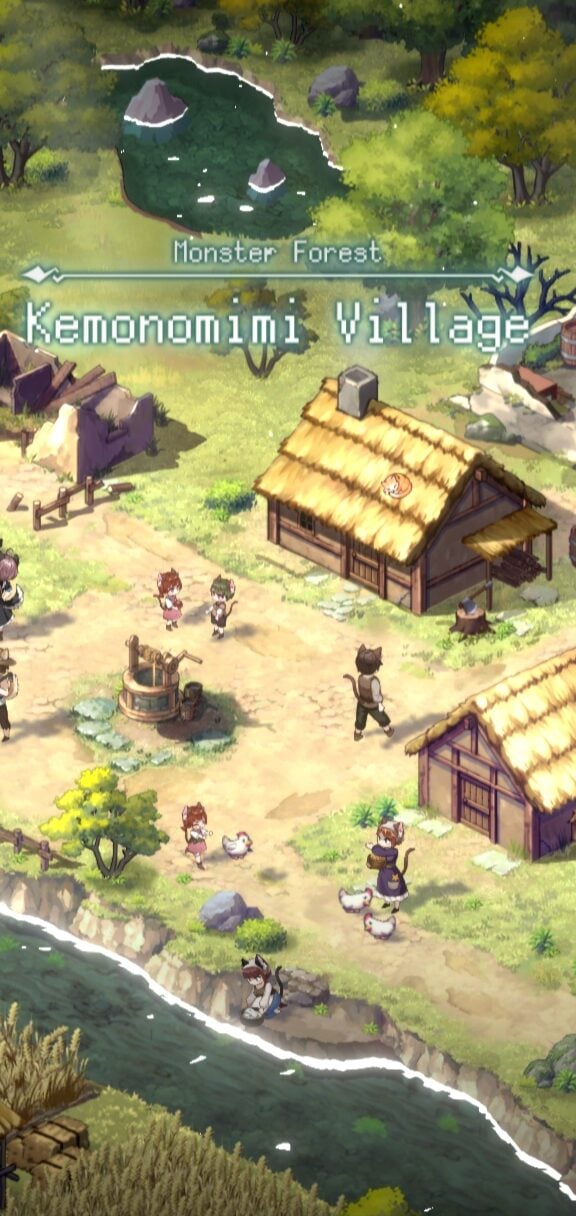
Photo: Mars-Games
Set in a fictional, magical world, you find yourself plunged into this universe by unknown means. Appearing in the poor Kemonomimi Village – destroying an Inn after falling from the sky – you’re surrounded by cute anthropomorphic people who are struggling to make ends meet.
Even more shocking, you’re now a walking, talking mushroom! On the bright side, you’re aided by the world’s AI system, Erica, to help you learn the basics of this new place.
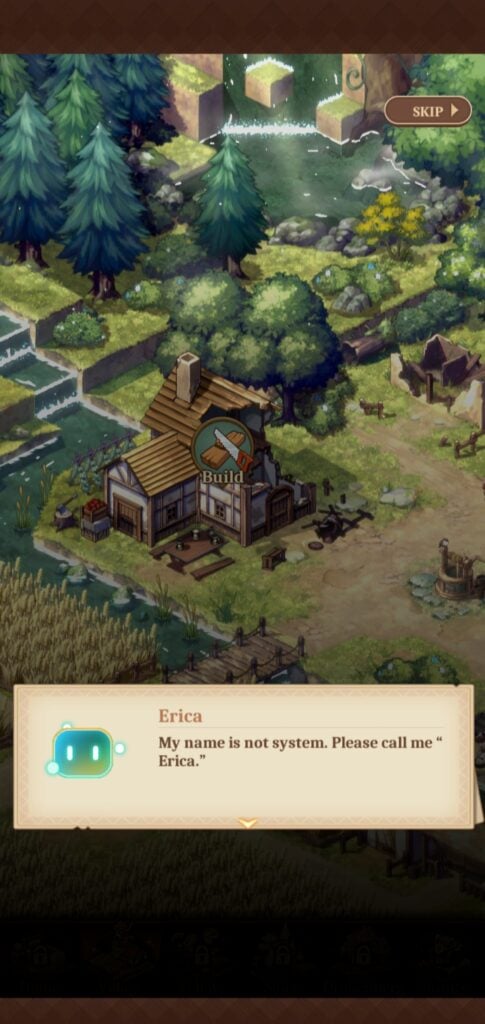
Photo: Mars-Game
Plus, you’re blessed with magical powers that can change the fortunes of the village, starting with the ability, Rapid Growth, to instantly grow the nearby Farmstead to harness its produce at any time. Eventually, more skills will become unlocked as you progress through the game, making you stronger.
There’s a lot to be learned from Isekai: Slow Life, and the game’s initial presentation disguises its many gameplay elements and mechanics that relate to each other. However, the gist of it all is that you need to find ways to continuously generate Gold income for the village, ensuring its growth and development.
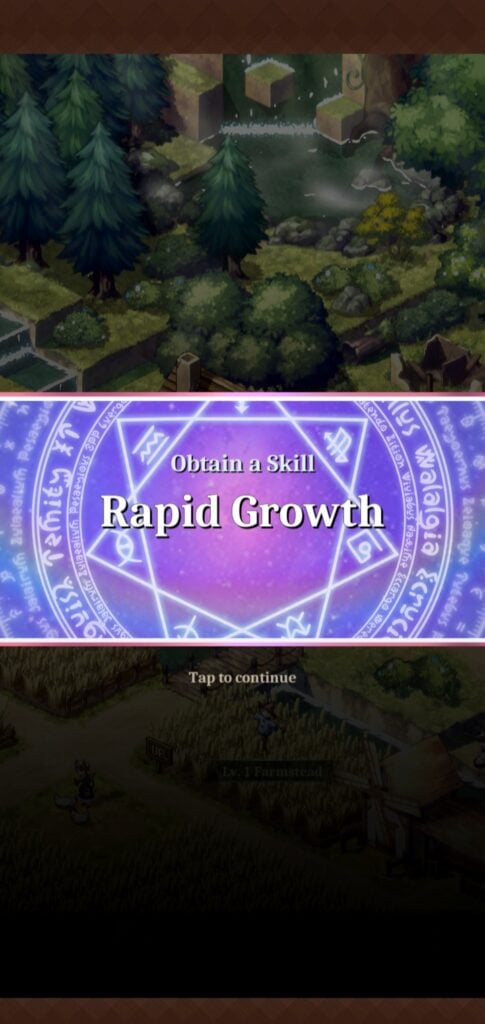
Photo: Mars-Games
Speaking of which, here are the primary in-game currencies you need to focus on:
- Gold
- The primary currency used for almost everything in the game.
- Crystals
- This is the premium currency utilized for more important activities, such as buying gifts for attending online Banquets (one of the game’s multiplayer sections).
The game passively accumulates Gold every second, and you can immediately add more by pressing the Farmstead as many times as you want, each time generating a small amount of Gold.
Ideally, though, you’ll need even more Gold-generation avenues to truly boost the village’s economy, and this is done by hiring more employees to work at designated buildings, such as the Inn and Apothecary (all buildings are unlocked by completing the game’s storyline via the Stages tab).
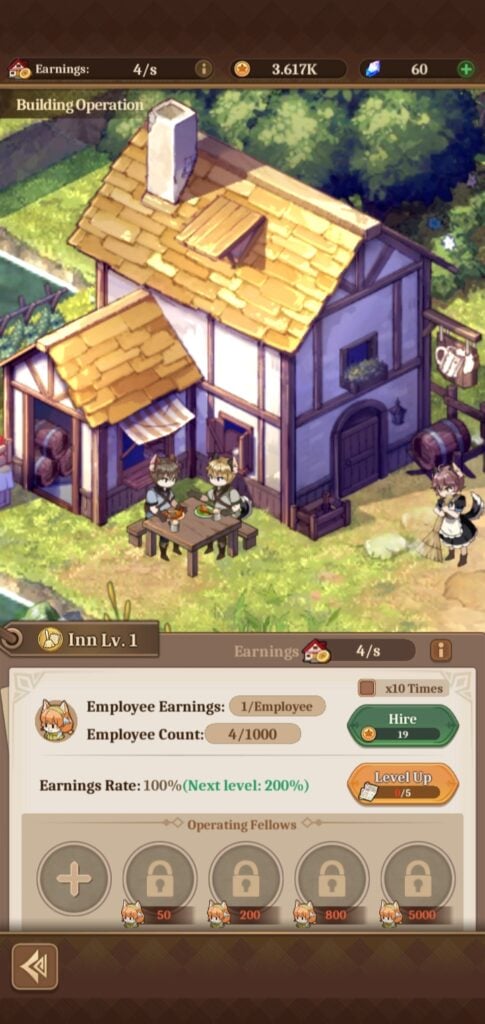
Photo: Mars-Games
Your in-game character has his own development to take care of too. To unlock more items, characters, and story content, you need to rank up as well, and this ties to two things:
- Fame
- Your popularity among the general populace.
- Earnings per Second (Gold income)
- Your village’s Gold income per second dictates how wealthy/ successful you are.
Once their bars are filled, you can rank up, opening more story content for you to explore, like the Bazaar and the Trading Post, later on. The best part of ranking up (a.k.a. leveling up) is you can recruit new faces into your character roster, becoming either your Fellows or Family members (more on those below)!
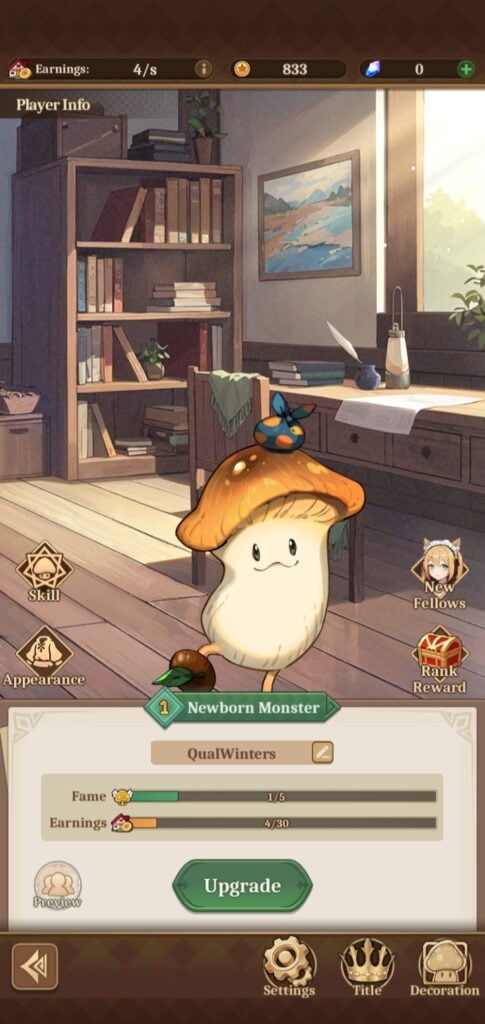
Photo: Mars-Games
Arguably, the main appeal of Isekai: Slow Life is its unique characters; many of them are the perfect waifus! This might not be everybody’s cup of tea, but it can be yours if you’re into MCs (Main Characters) with a dreamy harem to protect.
Village Management
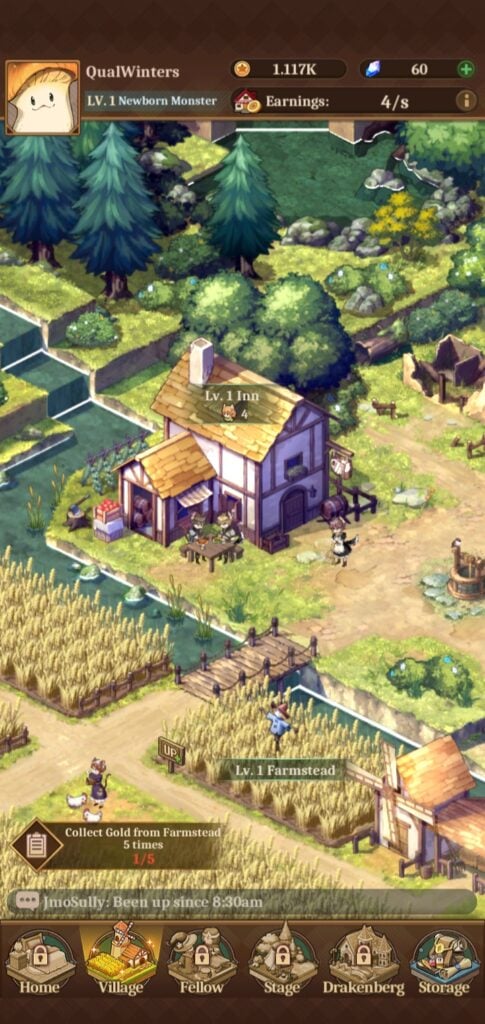
Photo: Mars-Games
Coming back to the core gameplay of Isekai: Slow Life, everything you do in the game comes back to your village’s ability to generate Gold. This can be done both passively and actively, to which:
- Active Gold Generation
- By having the Farmstead unlocked at the start of the game, you can instantly generate Gold by pressing on it repeatedly.
- Passive Gold Generation
- The village’s shops provide the necessary passive Gold income you need. In the early game, you’ll only have a few, like the Inn and the Workshop, but more will become available as you complete the storyline in the Stages section.
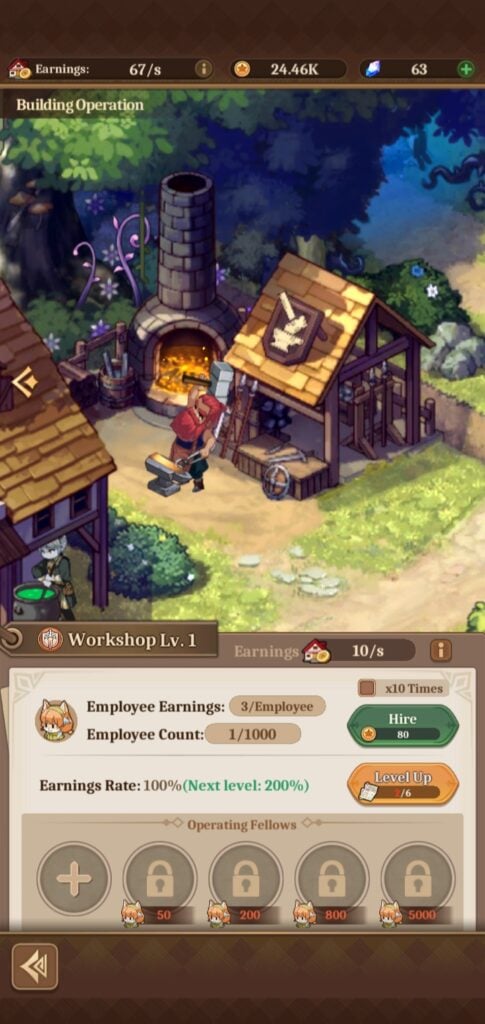
Photo: Mars-Games
Now, each building created will have its own micro-management panel, catering to its number of employees, potential Gold generated, upgrade requirements, and more.
As the shop/ building houses more employees, more ‘supervisors’ will be needed to manage them, and this opens up slots for Fellows to be designated to the respective buildings, relevant to their nature (Brave, Diligent, etc.).
The overall gameplay loop here is really that simple:
- Build new shops/ buildings when they become available
- Continuously add more employees to each shop once sufficient Gold is saved up.
- Upgrade each building when enough Blueprints have been found.
- Add the respective Fellows to their corresponding shops/ buildings to improve Gold efficiency.
- Repeat the whole process.
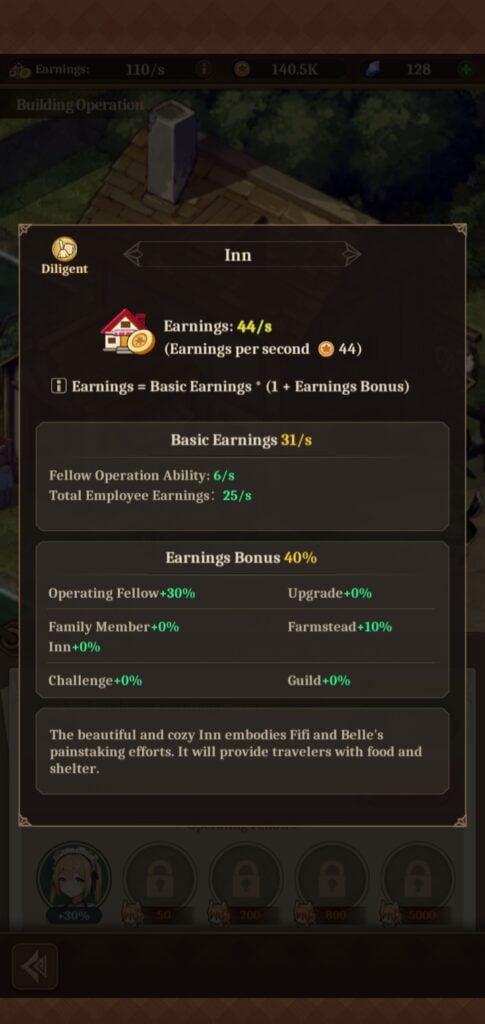
Photo: Mars-Games
At certain points in the game, specific lots of land will become available for you to build new shops, but these are commonly locked behind story progression. In other words, to expand your village further, you’ll need to complete the storyline via the Stage tab as well.
Fellows & Family
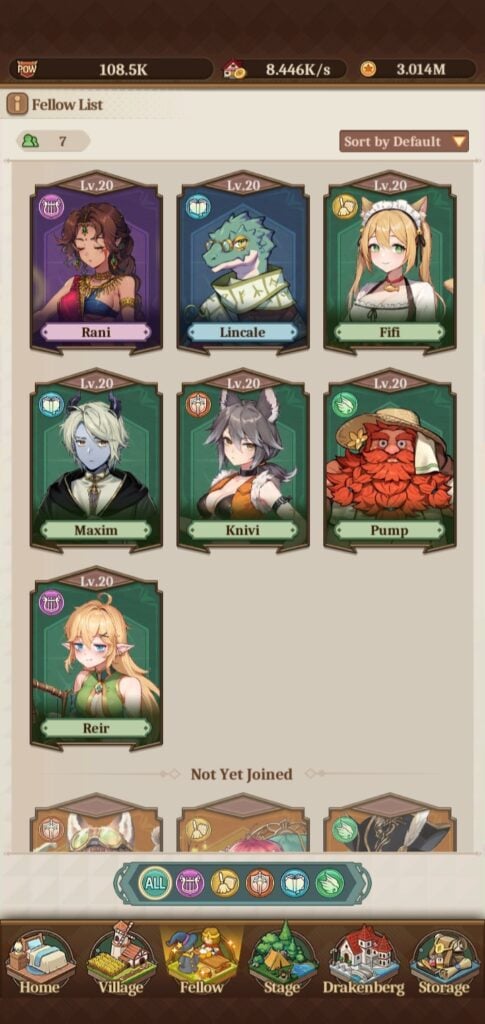
Photo: Mars-Games
Coming into the deeper aspects of the game are Fellows and Family members. They’re not comprehensively explained, but you quickly understand their roles just by playing the game accordingly.
In brief, each are:
- Fellows
- Skilled characters capable of managing specific shops/ buildings relevant to their nature (offering boosts to Gold generated), besides boasting strong Power (for battles).
- Family
- Romantic love interests that accompany you at Home, dating and improving your relationships with them to receive beneficial effects for the village.
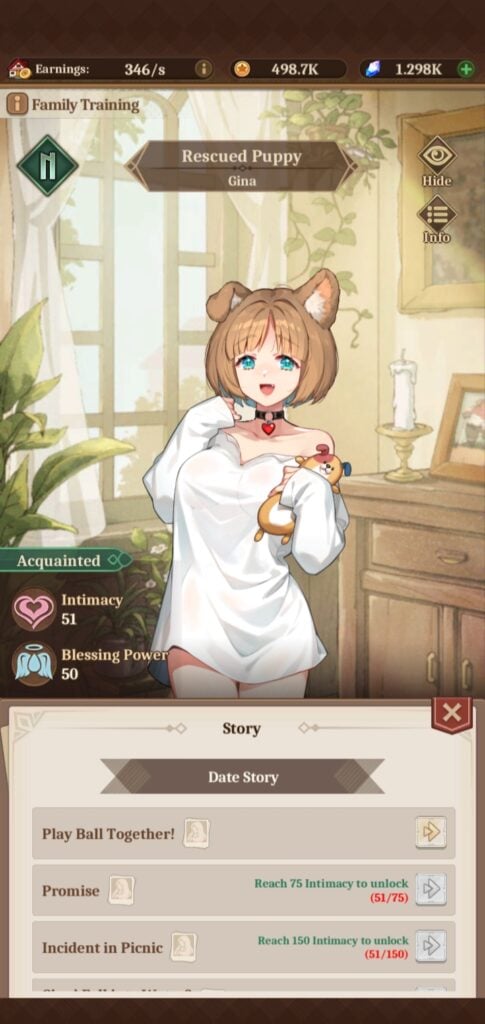
Photo: Mars-Games
All of them provide different advantages depending on what you’re going for. Here’s a quick overview of both of them:
Fellows
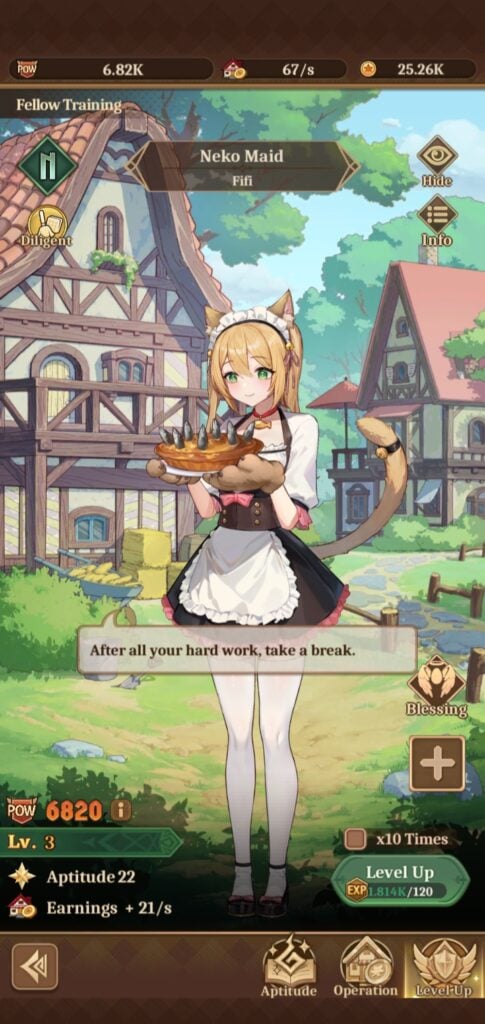
Photo: Mars-Games
The primary backbone of your village’s success, Fellows are your most crucial allies. They do all the work for you (literally!), giving you the Power rating that you need to defeat Boss battles or overcome dialogue checks (yes, Power does that here).
There are five different natures that each Fellow is classed into, each being:
- Inspiring
- Diligent
- Informed
- Brave
- Unfettered
Each Fellow can then be leveled up and equipped with Artifacts to empower them further, not to mention bolstered by corresponding Family member’s Blessing effects as well.
Family
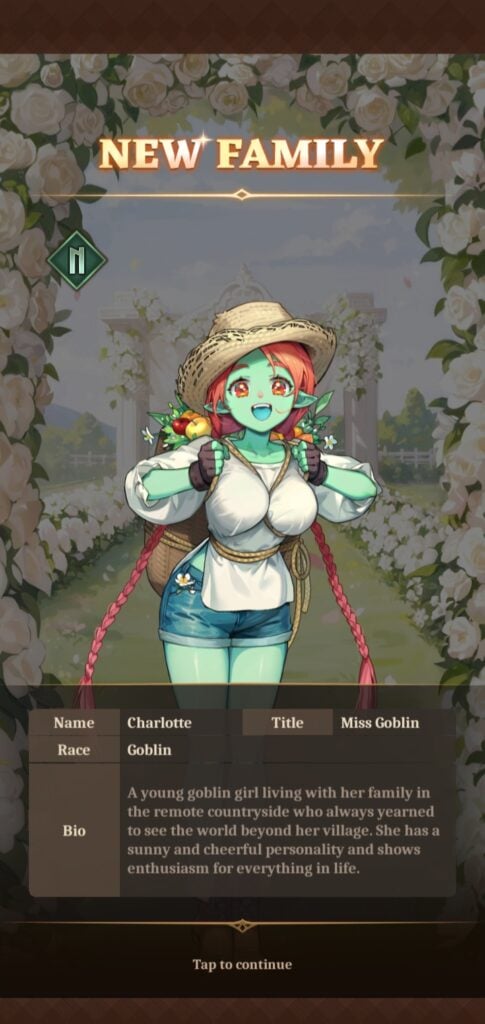
Photo: Mars-Games
Family members are your real waifus in the game; they live with you at home, and some are considered legitimately married to you, which can be quite sudden and out of the blue.
Still, what they really offer are boosts to your Fellows’ Power ratings and bonuses to different shop/ building’s Earnings per Second. Plus, they increase the Gold earned from adopted children who graduate from the village’s School too.
Suffice it to say, Fellows are your ‘active’ gameplay companions, while your Family members are your ‘passive’ supporters. After all, a village lord needs all the help he can get, right?
Story Progression
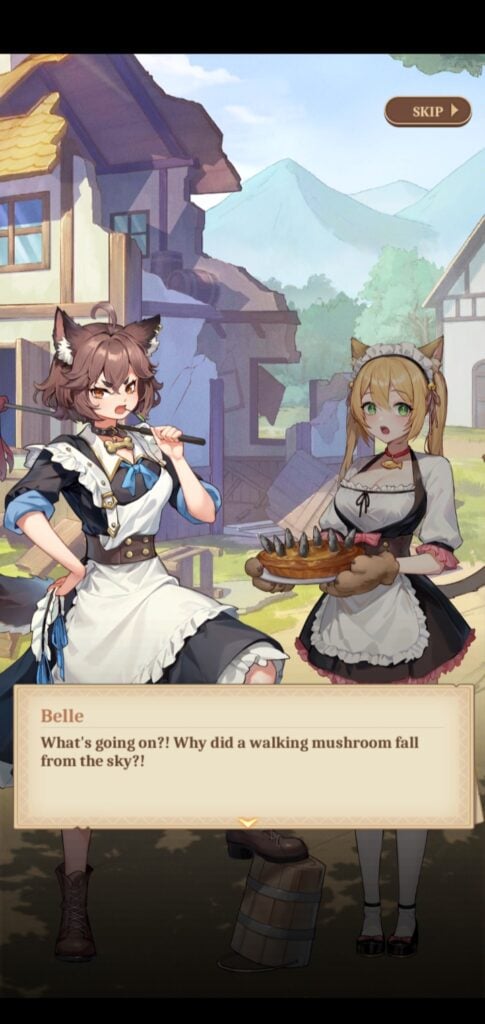
Photo: Mars-Games
Just like many other mobile games, you can enter Isekai: Slow Life‘s story mode by tapping on the relevant in-game tab. In this case, it’s the Stage icon located at the bottom-middle of the screen.
Once inside, you’ll automatically be presented with a screen detailing events transpiring throughout the current story chapter you’re in. To progress, you’ll need to use Gold for your character to walk toward specific milestones placed on the path (usually culminating in a Boss battle at the end).
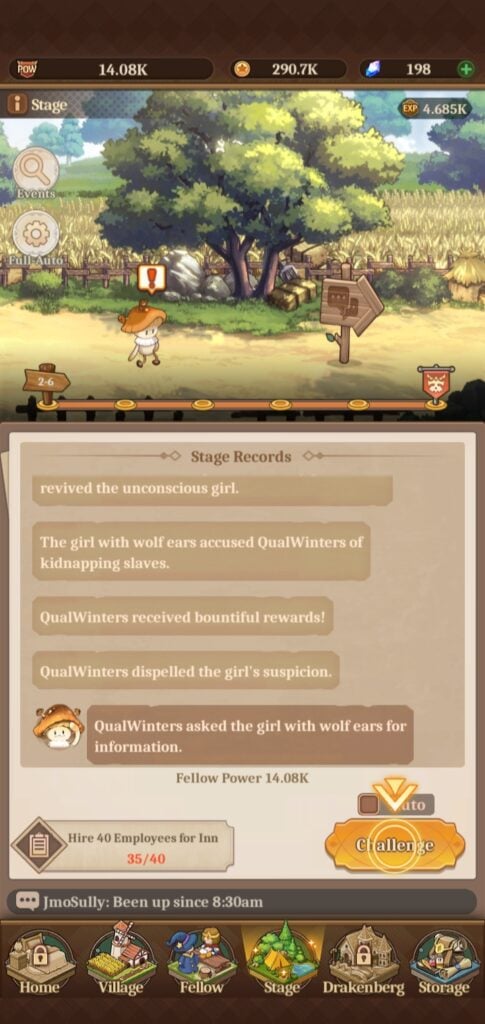
Photo: Mars-Games
Randomized occurrences can pop up in between, and they usually let you make decisions that normally assist you in either combat or back at the village. At this point, your Fellows’ overall Power plays a vital role when you’re up against the enemy at the very end, which can either be an ‘argument’ or physical combat.
Active Codes
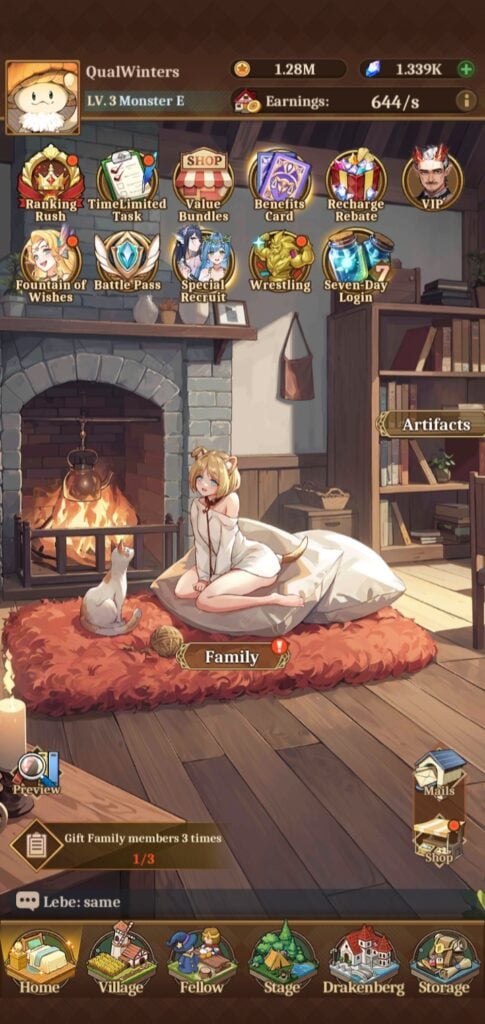
Photo: Mars-Games
Being a new game on the market, Isekai: Slow Life has a few in-game codes that you can use to redeem incredible rewards and exclusive stuff! These are still active, so make sure to get them as soon as possible before they expire:
- MUSHRUM
- 10x Fairy Bottles
- MYLIFE
- 200x Crystals, 2x Basic Elixir, 1x Bravery Crystal Ore, 1x Wisdom Crystal Ore, 1x Hope Crystal Ore, 10x Basic Earning Cards, 10x Basic Hire Cards
- AUGHAPPY
- 2x Fairy Bottles, 2x Basic Earning Cards, 2x Focus Candies
- JULYLUCK
- 5x Basic Earning Cards, 1x Stamina Potion, 2x Focus Candies, 2x Fairy Bottles
- SLOWLIFEOBT
- 100x Crystals, 5x Basic Earning Cards, 5x Basic Hire Cards, 2x Diamond Rings, 2x Jewel Necklaces, 2x Fairy Bottles, 2x Focus Candies
Conclusion
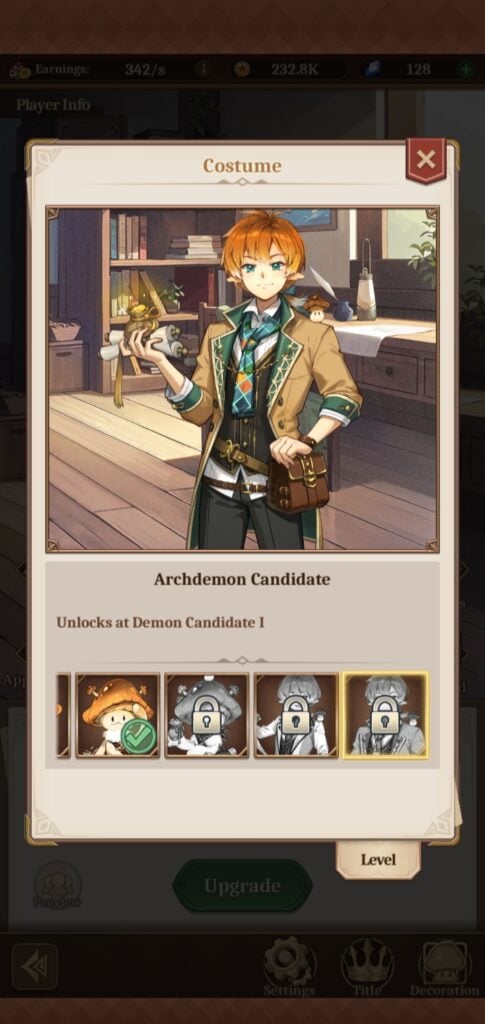
Photo: Mars-Games
Isekai: Slow Life holds a lot of value for you to spend your time with. There’s plenty of side content to enjoy, numerous characters to befriend or fall for, and a bustling village that holds you in high regard.
If you have any other advice to share, make sure to leave them in the comments section below. Don’t forget to check out our Omniheroes guide and new codes if you’re a fan of the game too!






